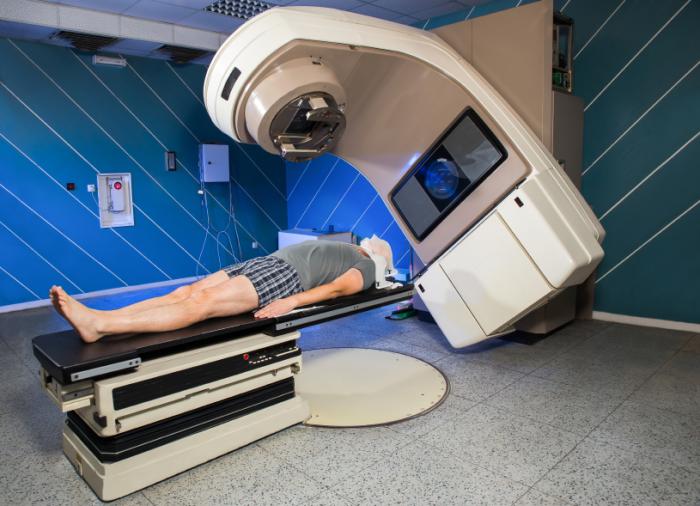In this post, we will talk about Nutrition before and after surgery surgery should be considered. If your doctor advice you to have surgery.
Surgical Nutrition

Surgery should be considered If your doctor advises you to have surgery. The longer a surgical procedure the higher rate of complications. However, when surgery is done correctly it is a lifesaver.
Things we often wonder about surgery:
If I do surgery, Will it likely be able to get rid of the tumor? This is one of the biggest questions that should be asked to your doctor. How confident are they that they will be able to get rid of the tumor.
Can it cause metastasis? Tumor of the size of 2cm and above have been shown to be producing or shedding a million tumor cells into the bloodstream. The question is can these circulating Marcels implant into another part of the body or into another organ. So the question of metastasis becomes more academic. Is this a question now of whether your body is able to resist the cancer cells from implanting to another part of the body. And if you do have metastasis are you still a candidate for surgery. Yes, there have been cases or situations where patients with cancers of multiple sleights can still do surgery and in fact, have better outcomes.
Can I delay or opt not to do surgery? This is a very big gamble especially if the tumor is already large and may cause obstruction to the blood vessels to your airways or to your gastrointestinal tract. My advice would always do the surgery. As soon as possible in order for you not to develop any complications. Now, if you do surgery which doctor should you choose. You try to choose the doctor with the greatest number of surgeries. That has been performed similarly to the surgery that is undergoing. This way, we are more confident that the doctor will be able to remove as much tumor from your body.
Benefits of Elective surgery
Elective surgery is way better than emergency surgery. if you lay a surgical procedure where you start having complications of obstruction to your airway to your blood vessels, to your gastrointestinal tract you’re more likely than not to develop complications and the longer stay in the hospital. So as much as possible do the surgery on an elective basis in order for you to avoid complications and you would have a fast recovery.
Symptoms
Now downsides to surgery are metabolic imbalances specifically higher rates of metabolism which would cause a higher muscle over the meaning of this being broken down because the body needs the extra energy for repair.
You might also develop blood loss especially if the surgery takes a longer time. You will also have some form of mineral and vitamin deficiency especially Vitamin B, vitamin K, vitamin D, magnesium, calcium, and potassium.
Things to do and take before surgery:
- Vitamin C
- Protein esp muscle building supplements
- Avoid high doses of vitamin A and E
- Micronutrients – Zinc, Selenium, Iron (if anemic)
- Start taking Digestive Enzymes
- Adequate Hydration
- REST, sleep early
After surgery
- When a doctor allows you to eat, make sure you should have high protein containing glutamine. Large surgical wounds would need more nutrients such as protein lysine and colleges. So please make sure to add this to your post-surgical attrition
- Vitamins A, D, E, K, and B, C
- Arginine can also be added but make sure not to take it for too long.
Chemotherapy & side effects

Effects of Chemotherapy
You know chemotherapy has severe sometimes life-threatening side effects. This is due to the deficiencies of detoxification and enzymes, nutrient deficiencies or eventually malnutrition due to the inability of the person to eat due to nausea.
Types of chemotherapy side effects:
- Cardiotoxic ( Effects the heart )
- Gastro-toxic ( One of the most common )
- Hepatotoxic ( Effects on the liver )
- Hemotoxic ( Effects on your blood cells )
- Neurotoxic ( Effecting your nerve and brain )
- Nephrotoxic ( Effect on your kidneys )
Chemotherapy and Supplements
People who are undergoing chemotherapy and are taking supplements. Please be aware that some herbs and vitamins and minerals supplements may actually interfere with the chemo and it’s either they decreased their effectiveness of an acceptable drug or multiply or what we call potentiates the activity of chemotherapy agents. Therefore please be aware and tell your doctor if you are taking any supplements
General rules to avoid chemotherapy-associated side effects
- Eat well and eat the right kind of food.
- Rest and make sure you have plenty of fluids.
Chemotherapy & Fasting
One of the newer research that is being undertaken is the effect of fasting on chemotherapy as early as 2012. They have already shown that fasting prior to chemotherapy can lower the intensity and occurrence of side effects.
Increased chemotherapies effectiveness against cancer cells, as well as help, regenerate the healthy seven cells in our body.
Detoxification
It is also important for your body to get rid of much toxins as possible. Toxins from the chemo drugs cancer cells, the relief that toxins swell if the internal toxins generated by the body trying to get rid of all the keep the drugs as well as the cancer cells toxic.
Some things that you should do for detoxification:
- Exercise
- Colon cleansing
- Diuretics
- Sauna
- Lymphatic drainage
Don’t try detoxification, if you are weak or you are not able to do things by yourself.
Supplements after Chemotherapy
General Recommendations:
- Glutathione, N-acetylcysteine, Milk thistle, Alpha lipoic acid: These four supplements help the liver to detoxify.
- Glutamine and protein: This helps the body recover especially if you are able to eat properly.
- Multi-vitamin and Multi-mineral
- Alkaline or Mineral Water (1.5L)
- Iron if anemic
Immunosuppression:
- It is very important for you to Isolate and Rest yourself.
- Some supplements will help you boost your immune system are Mushroom and its extracts.
- Vitamin D3, vitamin C
- Tea tree oil is excellent for fighting viral bacterial and fungal infections.
Gastro-intestinal symptoms:
- The most studied and most effective way is the use of Ginger tea.
- Lavender and chamomile tea may also help with your nausea and vomiting.
- Glutamine is excellent in building up the muscle and building protein into your body.
- Virgin Coconut oil and Hemp oil are also excellent sources of energy as well as some nutrients that would help with your nausea and vomiting.
Cardiotoxicity:
For those who develop or might develop heart toxicity, you may use Coq10 (200-400mg), L-carnitine (2g/day), D-Ribose.
Nephrotoxicity:
- For those developing kidney toxicity. You have to increase your food intake. You should take Coconut water which is also a natural diuretic.
- Teas: dandelion, green tea, hibiscus, Rooibos are excellent ways to hydrate the body without toxing the kidneys.
Hepatotoxic:
Glutathione, N-acetylcysteine, Alpha lipoic acid, Vit B complex, phospholipids, essential amino acids are very important for the body to be able to rebuild the detoxification function of the liver.
Neurotoxic:
Now in patients who develop neurotoxicity it from the nerves or from the brain:
- Alpha lipoic acid
- Vitamin B1 (Benfotiamine)
- vitamin B complex
- Omega 3
Now for those who develop pain on the extremities due to the damage caused by chemotherapy or the nerves. Chili or capsaicin ointment might able to help you decrease the pain.
Radiotherapy: slow burn

What is Radiotherapy?
Radiotherapy is effective in the control and killing cancer cells locally. Side effects are local and generalized. If done correctly, it is excellent therapy for killing tumor cells.
Side effects:
- Fatigue
- anemia
- Skin burns
- low immunity
- Gastro-intestinal symptoms ( especially if the gastrointestinal tract is affected.)
Increase Radiotherapy effects:
- Increase oxygen levels
- Increase body temperature
- Niacin 3grams
- Vitamin A, C, E
- Selenium
Reduce Side effects can be reduced by taking in:
- Glutamine NOT glutathione ( Especially those who have gastrointestinal symptoms )
- Ginger ( For nausea and vomiting )
- Ginseng ( for generalized weakness and fatigue after radiotherapy)
- Aloe vera and Calendula for skin ( If your skin burns due to radiation )
- Curcumin
- Green Tea, ECGC
- Vitamins A, B, C, D, E
- Iodine ( To support the body during and after any radiation treatment )
Brain Irradiation:
This is probably one of the most difficult treatments because it affects the brain directly and you might develop some form of brain injury. To protect them you may use:
- Gingko Biloba
- Omega-3
- Gotu Kola
- Liposomal Glutathione
- Frankincense oil
Use them to avoid further injury to the brain after radiation treatments.



